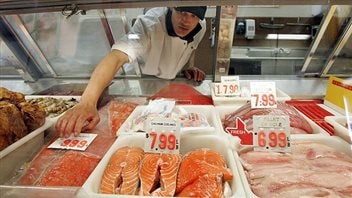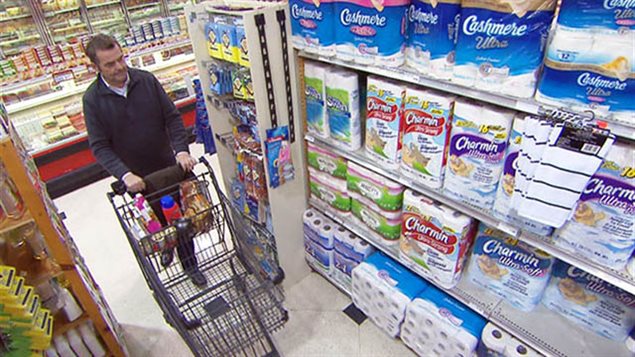Canadians generally go food shopping once a week or so, and most shopping is done in large supermarkets. It’s a model that’s been around since the 1960’s when large stores offered a vast selection of food products under one roof.
That model is now under attack says Sylvain Charlebois. He is a professor in food distribution and policy at the University of Guelph.
Listen
Since Wal-Mart, a recent and aggressive arrival in Canada, began offering food items in its stores alongside clothing, electronics, housewares and more, the competition for the traditional supermarket has increased.
Another American giant in Canada, Costco, also sells everything from automotive supplies to TV’s to cheese and meats. Even so-called super budget “Dollar Stores” have food items.
Loblaws, one of the major supermarket chains in Canada, recently purchased the Shoppers Drug Mart pharmacy chain and has begun placing some of its food items there. In addition, Loblaws, the biggest food retailer in Canada, for the first time in 2014 sold more non-food items than food items.
All of this is changing consumer shopping habits in Canada and how stores position themselves.

In addition, many consumers have become more interested in buying directly from farmers, and the local farmer’s markets in cities have been doing more and more business.
Online shopping is starting to grow as well.
Professor Charlebois says, this doesn’t mean the end of the “traditional” supermarket, at least not right away, but the market is becoming more fragmented.
He says the old model will have to adapt and some supermarkets will disappear, but be replaced by more specialized stores targeting specific markets, such as retirees on fixed-incomes looking for lower costs, or offering of more organic foods to a young “millennial” crowd.
He notes the situation is also beginning to occur slowly in other countries like Brazil, but not in Europe, where the large supermarket phenomenon is not prevalent







For reasons beyond our control, and for an undetermined period of time, our comment section is now closed. However, our social networks remain open to your contributions.